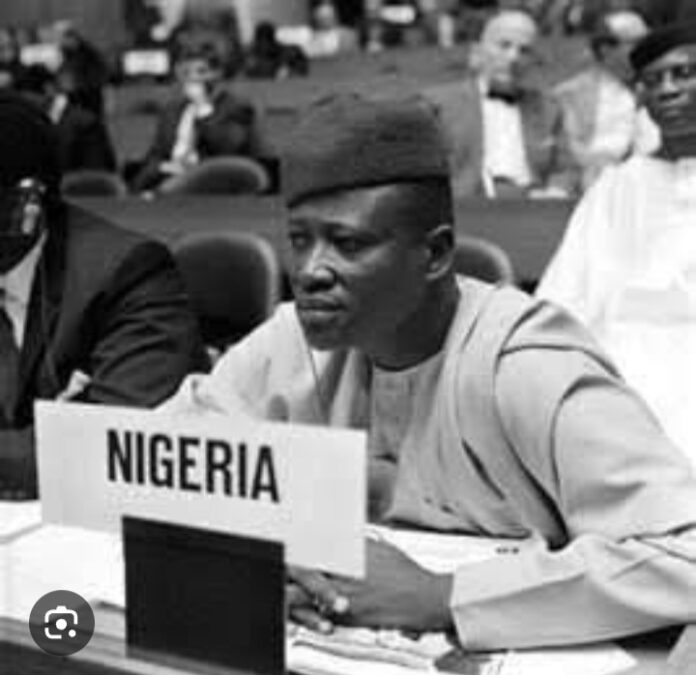Zanna Bukar Dipcharima 1917–1969 remains a celebrated figure in Nigeria’s political history, recognized for his service during the First Republic.
Born in Dipchari village in the Borno Province (present-day Borno State), Dipcharima’s journey from a humble upbringing to a political icon is a testament to his dedication to public service and the development of Nigeria.
Dipcharima was born to Lawan Dipchari, a Kanuri District Head, in 1917. He began his education at Maiduguri Middle School and later trained as a teacher at Katsina Higher Training College. His early career as a teacher (1938–1946) laid a foundation of discipline and public engagement that would define his political career.
His first foray into politics came through the National Council of Nigeria and the Cameroons (NCNC), led by Dr. Nnamdi Azikiwe. In 1947, he was part of the NCNC delegation to Britain, advocating for Nigeria’s interests. However, Dipcharima soon shifted gears, joining the British trading company John Holt as a manager in Bida. This brief hiatus from politics ended in 1954 when he was invited by the Borno Province branch of the Northern People’s Congress (NPC) to lead as its president.
Dipcharima’s leadership in the NPC marked a turning point in his political career. He was elected to the Federal House of Representatives in Lagos in 1954, where he began his journey in national governance. Appointed Parliamentary Secretary in the Ministry of Transport, he quickly rose through the ranks, becoming Minister of State without Portfolio in 1957. Later, he served as Federal Minister of Commerce and Industry and, subsequently, Minister of Transport.
As Minister of Commerce and Industry, Dipcharima made significant strides in positioning Nigeria as an attractive destination for foreign investment. In 1963, he traveled to the United States, seeking American partnerships to develop Nigeria’s manufacturing sector. His efforts aimed to reduce the dominance of British firms in the Nigerian economy. He assured potential investors of a business-friendly environment, highlighting the absence of racial antagonism and offering tax incentives.
Dipcharima’s political acumen was further demonstrated during the January 1966 coup, which saw the overthrow of Nigeria’s First Republic. In the absence of Prime Minister Abubakar Tafawa Balewa, who was abducted, Dipcharima presided over the Cabinet that facilitated the transition of power to the military.
Beyond politics, Dipcharima’s legacy endures in various forms. The Federal Ministry of Transportation headquarters in Abuja bears his name, honoring his contributions to Nigeria’s development. Moreover, the traditional “Yemenee cap” he popularized has been renamed the “Zanna cap,” symbolizing his enduring cultural influence.
Dipcharima’s life was tragically cut short in an air accident in 1969, but his legacy as a patriot, reformer, and visionary remains intact. His contributions to Nigeria’s political and economic landscape, particularly during the nation’s formative years, continue to inspire future generations.


